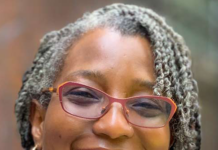 A new study by scholars at the University of Southern California, the University of Texas at San Antonio, and New York University sought to determine if teachers in virtual classrooms have biases against Black students.
A new study by scholars at the University of Southern California, the University of Texas at San Antonio, and New York University sought to determine if teachers in virtual classrooms have biases against Black students.
Researchers conducted an experiment with 989 teachers in schools throughout the United States. More than 82 percent were female and 68.5 percent were White. All teachers rated the same 12 pieces of student work, with the only exception being that the image of the student representing the work was randomly selected from the pool of images of White and Black girls and boys. Teachers were given a 10-point scale on which to evaluate the mathematical correctness of each student’s solution on a scale ranging from completely incorrect to completely correct.
The researchers found that there was not a significant statistical difference between the teacher’s evaluation of the correctness of responses between Black and White students. They also found that Blacks were recommended for gifted education programs at the same rate as White students. For students whose answers were not rated as completely correct, Black students were more likely than their White peers to be recommended for Individualized Education Programs (IEPs) for students who need extra help and support in school.
Overall, the study found no bias among teachers in grading or ability judgment or in recommendations for gifted education programs. But the study found that Black students were not more likely than their White peers to be recommended for extra help and support in school.
The full study, “Teacher Bias in the Virtual Classroom,” was published in the journal Computers & Education. It may be accessed here.












